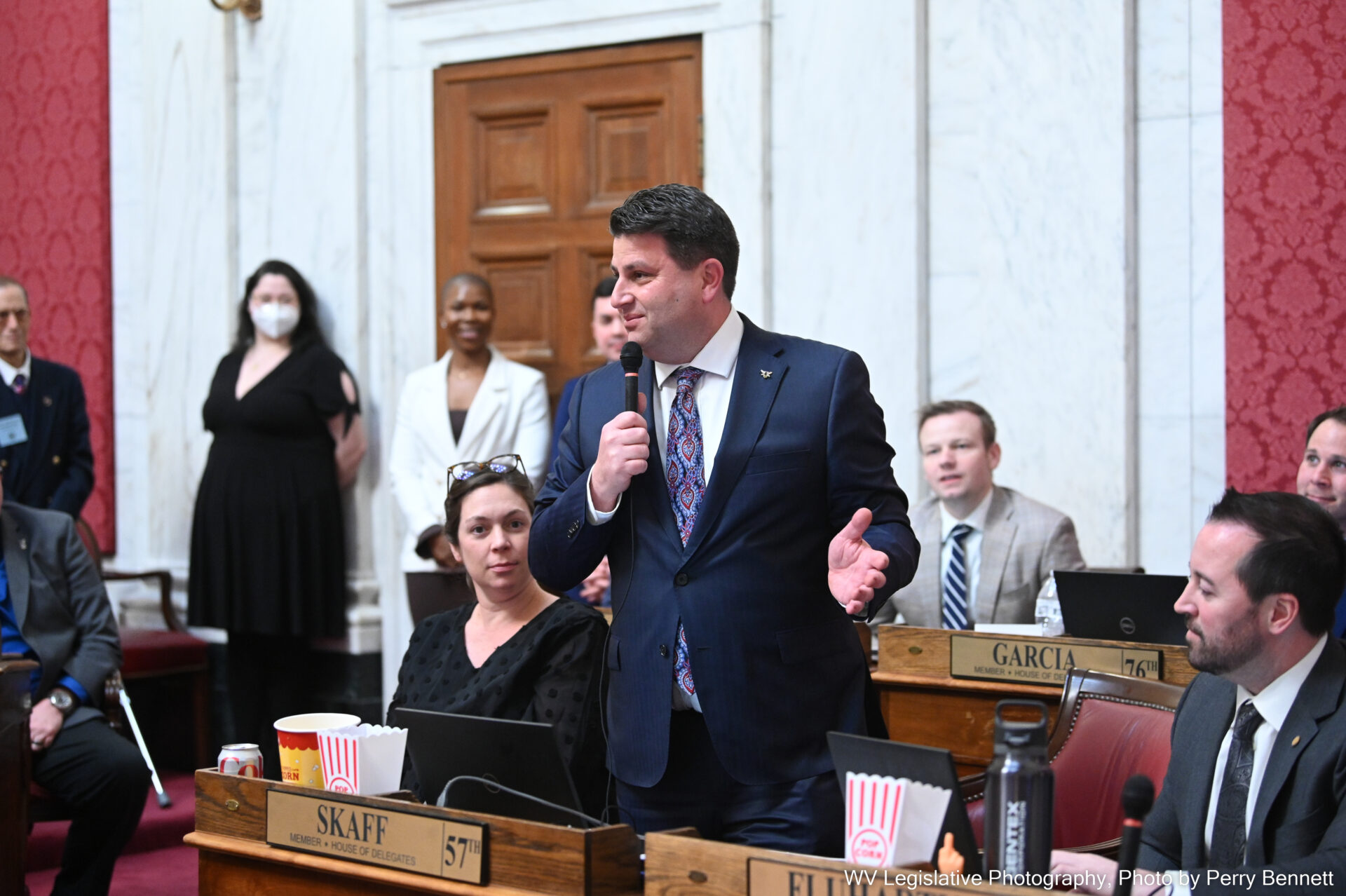This is a developing story and may be updated.
Updated Thursday, Oct 12, 2023 at 4:03 p.m.
In a statement on the West Virginia Republican Party website, party chair Elgine McArdle said the party would “certainly welcome voters and public servants who join the Party as a matter of policies and principles.” She questioned whether Skaff, running as a republican for Secretary of State, fit that description.
“The West Virginia Republican Party recognizes the philosophical nuances that can exist within the Party and welcomes those who genuinely believe in our cause; however,” McArdle said. “Republican voters are sometimes tasked with differentiating between ‘philosophical nuances’ and ‘diametric ideological opposition.’ Now that Skaff is labeling himself as a ‘Republican,’ despite his storied liberal record in the House, the upcoming primary is one of those times.”
Updated Thursday, Oct. 12, 2023 at 3:37 p.m.
Skaff is the president of HD Media and owner of various small businesses, He said he has the skills and experience to excel in running elections and shepherding state business activities.
“My past experience as a legislator, and in my small business and large business ventures, I think it would be a great complement to that office,” Skaff said. “Not only is it the business portal office for the state, it does a lot of charities and organizations, but elections get all the attention. We need to do more to get people involved in the election process, find more poll workers, engage people at a younger age to get involved in the whole election process.”
As to changing parties, Skaff says he’s pro-life, pro-guns and pro-coal and like so many others, his values haven’t changed, just his political label.
“100,000 Republicans didn’t just move to West Virginia overnight, and change their party affiliation,” Skaff said. “These were old blue dog Democrats who were always conservative mainstream, and just registered with a different party. Like many others before me, I know I’m not the first and I won’t be the last to work with a team in the Republican Party that represents the majority of West Virginia’s interests.”
A statement from the West Virginia Democratic Party and West Virginia Democratic Party Chair. Del. Mike Pushkin. D-Kanawha, called his party switch a ‘gamble’.
“While I appreciate Doug finally putting his cards on the table about his long-rumored, politically expedient party switch,’ Pushkin said. “I’m surprised he would try to reinvent himself as a right-wing conservative in the process. I know Doug has long been intoxicated by the idea of winning a statewide office. Still, his candidacy could leave Republican primary voters with a hangover when they find out about his actual voting record.”
Skaff said the Secretary of State’s office should wear no stripes and represent all of the people regardless of their party affiliation.
Original Story posted Oct 12, 2023.
Doug Skaff Jr., the former West Virginia House of Delegates Democrat and Minority Leader, has filed to run for Secretary of State as a Republican.
Skaff left his House leadership post in August 2023, that announcement coming in a news release from House Democrats. He resigned from the House of Delegates in September 2023.
Skaff was first named Minority Leader in December 2020, after former-Minority Leader Tim Miley did not seek reelection. The former Kanawha County Democrat represented the 57th district for 12 years.
Skaff, president of HD Media, had said he planned on using the extra time to focus more energy on his businesses and coaching his three sons at soccer.
Three other Republicans have also announced they are running for Secretary of State: Del. Chris Pritt, former Del. Ken Reed and Putnam County Clerk Brian Wood.
